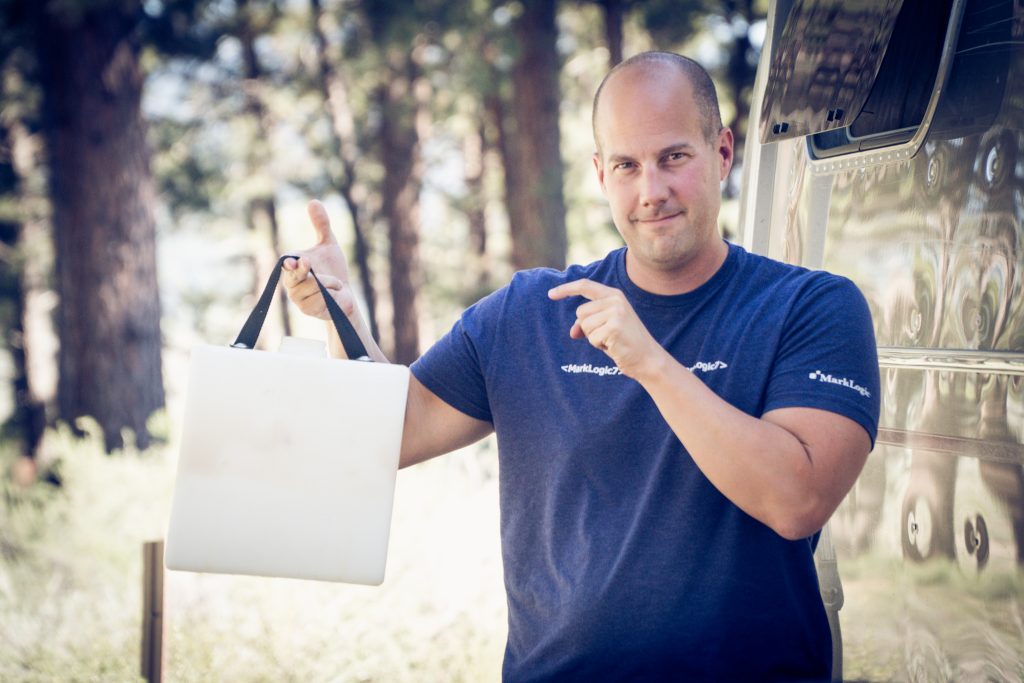The things that early retirement won't fix

Here I am ready to drop a little bit of reality on you - after retiring from work at the age of 35, I've discovered that early retirement isn't some instant-fix to all of life's problems. It's not that calamine lotion elixir stuff that seems to make everything it touches feel better.
Instead, think of it like a light coating of bug spray. It prevents a lot of bugs from biting you, but it also isn't full-proof. And, it smells kinda weird, too.
And sometimes, it's sticky.
Early retirement sits firmly in that "grass is always greener" area of life. And make no mistake about it, I love the freedom to pick and choose what I do each and every day. I wouldn't trade this freedom for anything. It is everything that I thought it could be, and with the traveling component, so much more.
But, it's also not some magical cure-all, either.
After a few years of "being retired", here are the top 6 things that early retirement just won't fix - for virtually anybody who tries.
[I do encourage you to try, though!]

Things that early retirement will never fix
1: Your sense of purpose
There's no way in hell that the absence of a full-time job will ever truly cure you of your lack of purpose. It won't happen. If you quit your job without something else in your life to keep you busy with a genuine sense of accomplishment, you WILL go back to work or you'll feel dreadfully hollow in early retirement.
Before I quit at 35, I made sure that I had a sense of purpose outside of my job. You know, things to do. Things I enjoyed. It was easier for me because I didn't especially enjoy what I did for a living. I gained very little satisfaction out of my job, so I found it relatively easy to discover more creative pursuits that very quickly became my purpose and passion in life sans full-time job.
For example:
This blog - ThinkSaveRetire.com is my primary creative pursuit, and I spend quite a bit of time maintaining this sucker, writing new posts and just putting in the effort necessary to continue its reach into the general population. After spending some time monetizing it, I'm also bringing in a respectable cash flow, too!
YouTube - my wife and I built and maintain a growing YouTube channel called A Streamin' Life. I have always loved photography and YouTube is the current manifestation of our need to be visual. Video is a huge medium with a ton of untapped potential. We are experimenting a bit to see how far we can push that channel. We have over 9,000 followers - and growing.
IT Consulting - I keep my skin in the information technology game through consulting gigs. I work with Rockstar Finance and a couple other outlets. I also do side projects with my camera to help keep us busy and feeling accomplished.
2: Your health
Spending more time doing the things you want will not fix your health - at least magically. It's true that early retirement CAN relieve the stress that you felt at the office. And, that stress probably contributed to adding to your waistline and general health nastiness. That part IS true.
But, it also won't prevent you from dying young or contracting a debilitating illness. It's not some invisible barrier to anything and everything that could harm you.
In fact, early retirement has a way of adding stress. Every day, early retirees make conscious decisions about how to spend their time. Working a full-time job, those decisions were largely made by an external entity. We all have routines when we work jobs, and those routines take the guesswork out of our day-to-day tasks - for the most part. We gotta be at the office. We need to answer emails. We must get such-and-such task done. Same shit, different day.
But without a full-time job, it's entirely up to us. Just like self-employment, the freedom to pick and choose what we do with our time isn't always as fluffy as it sounds. You need to be the right kind of person to make that work. Internal motivation helps. Giving yourself goals to accomplish and challenges can ensure that we're not just sitting on our butts watching television all day. That could work for a few weeks, but eventually, it just won't cut it. We get unhealthy and out of shape - and, who wants to retire early just to get unhealthy?
Our health is one of those things that we need to take an active role in with the understanding that bad stuff happens, and early retirement won't prevent that.
3. Your stress
Like I said in #2, stress will not suddenly disappear. Work-related stress at your particular job might, but remember, early retirement is still life. You'll still have chores to do. Errands to run. Bills to pay. Early retirement is not some vacation where every one of your needs is instantly provided for by staff (unless you're filthy rich, of course). Real life still happens.
Your husband/wife will still piss you off (more on that below). Family members still die. You still have a bunch of shit that you probably don't want to do. None of that magically disappears after giving your boss the finger notice. If you are prone to stress, the absence of a job might not magically fix that organic problem.
4: Your relationship

Early retirement could very well make your relationship with your spouse worse. If you're home all the time - and they are too, then you've suddenly found yourself spending significantly more time around each other. If you're going into early retirement with relationship trouble, early retirement is not likely to fix that.
In fact, it could bring out more nastiness.
Instead of looking at early retirement as a miracle pill for your relationship, use your time away from the office to actively help your relationship. Don't sit there and expect things to work themselves out naturally. More times than not, it doesn't work that way.
Even living in a 200 square foot Airstream, my wife and I have an excellent relationship. We each have our own separate office areas. We churn through our "work" in the morning hours and then spend the rest of the day exploring or traveling. It's a perfect situation, but only because we're able to keep ourselves busy and out of each other's hair.
5: Your friendships
It's true that having more time to spend with your friends could improve your relationship with them. But just because YOU are retired doesn't mean they are, too. In most cases, they probably still work. They might support your decision to retire early (at least to your face), but they will be at a very different stage of life than you. If you're smart, you will respect that.
For example, they might want to continue spending money, putting you in the uncomfortable position to decline invites to social events that you might otherwise want to attend because of costs ("You wanna go grab a few beers?"). Then again, your friends might outright resent you for the freedom that they probably want. Handling a relationship when you're completely Scott free from work, but they are still slaving away at the office, is easier said than done.
Trust me, I've done it.
I've found the best course of action is to avoid discussions of work (especially working hours) unless they specifically bring it up. If they do, just don't be a jackass and reinforce the fact that you spent your whole day blogging and watching re-runs of Seinfeld. That's not going to help.
Focus on them and their struggles rather than pointing out how well you might be doing. Show empathy. You know, basic "friend" skills.
Don't be an ass.
6: Your Netflix habit
Or, virtually any bad or meaningless habit. If you're prone to binge watch Netflix on the weekend, you might find yourself watching way more Netflix after quitting full-time work. Habits die hard, especially when you have a lot more time to pursue them.
That's such an important concept that I need to say (write) it once more: Habits die hard, especially when you have a lot more time to pursue them.
To break bad habits, they need to be fixed or replaced with better ones. They can't be covered up, at least for long. Resist the temptation to tell yourself, "After I retire early, I'm going to quit watching so much television and read". It's easy to say, but way tougher to actually do.
What say you? If you are retired early, what are some elements of life that you hoped early retirement would fix but didn't?